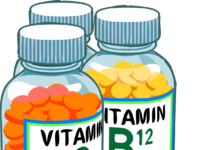There are several disorders you can come across under the term ‘Diabetes.’ All these disorders vary from one another depending on their causes, mode of treatment, and complications.
From this post, you will get detailed information about two types of diabetes, diabetes type 1 and diabetes type 2. We will cover the meanings of these disorders, their risk factors, causes, and symptoms.
Let’s start!
What Is Diabetes?
Diabetes refers to the medical condition that affects the ability of the body to process blood glucose. It is essential to treat diabetes while it is early enough to avoid the build-up of sugars in the blood, which can lead to heart disease and stroke.
There are various forms of diabetes that one can suffer from, and managing these conditions relies on the type. Also, you need to note that an inactive lifestyle or being overweight is not the only cause of diabetes. These are some cases where these medical conditions affect an individual as early as from childhood.
Types Of Diabetes
Three major types of diabetes can affect any person. These include gestational diabetes, type 1 diabetes, and type 2 diabetes. In this post, we will look at type 1 diabetes and type 2 diabetes.
Type 1
Type 1 diabetes refers to the form of diabetes that arises when the body cannot produce insulin. Here, individuals with type 1 form of diabetes need to consume artificial insulin from one day to another so they can stay alive.
Type 2
Type 2 diabetes refers to the form of diabetes that causes changes in how the body makes use of the available insulin. Yes, the body produces insulin in this case, but it responds to it inappropriately. Type 2 diabetes remains to be the most popular diabetes amongst most individuals. Also, it is this form of diabetes that features robust connections with obesity.
Working Principle Of Insulin
Insulin refers to the hormone featured in the pancreas. The pancreas is a body organ that secretes insulin directly to the bloodstream. After this, the secreted insulin circulates, allowing sugar to enter the body cells.
Generally, insulin performs an essential role in lowering the amount of sugar present in your bloodstream. Thus, a decrease in the amount of sugar in the blood means a reduction in insulin secretion.
Causes Of Diabetes
There is no specific cause of the type 1 form of diabetes. However, there is an argument that this diabetes results from a combination of environmental factors and genetic susceptibility. But these factors remain unclear.
For type 2 form of diabetes, it primarily results from environmental and genetic factors. Also, it can result from being overweight, but not in all cases.
Type 1 Diabetes Risks
- Pancreas Disease : They slow the ability of the pancreas to make insulin.
- Infection: Some infections cause damage to the pancreas.
- Family History: It is possible to get diabetes too if you’ve relatives suffering from this medical condition.
Type 2 Diabetes Risks
- Insulin Resistance: Type 2 diabetes can start, especially for those cells that become resistant to insulin.
- Obesity: Obesity leads to type 2 diabetes in most cases.
- Impaired Glucose Tolerance: It is possible to get type 2 diabetes if you have prediabetes.
- Gestational Diabetes: It increases the chances of suffering from type 2 diabetes.
Diabetes Complications
- Blindness
- Sexual dysfunction
- Bladder problems
- Damage to the blood vessels
- Orthostatic hypotension
- Diabetic ketoacidosis
- Slow-healing wounds
Diabetes Symptoms
- Blurred vision
- Dry and itchy skin
- Dry mouth
- Numbness in the feet or hands
- Increased thirst
- Frequent urination
- Sores that take more time or do not heal at all
- Increased hunger
- Regular yeast infections
- Unexplained weight loss
Diabetes Prevention
Preventing diabetes is a reality for the case of type 2 and not type 1. Thus, you can prevent type 1 form of diabetes by:
- Eating healthy foods
- Getting more physical activity
- Losing excess pounds
- Taking oral diabetes drugs like metformin







